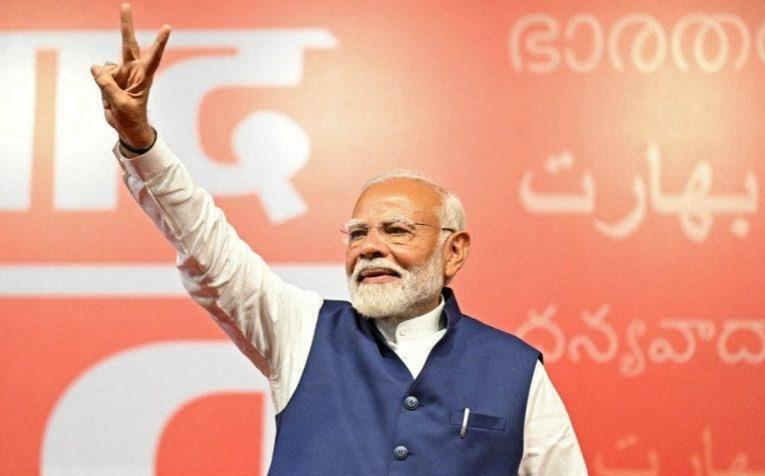
Narendra Modi, Indian Prime Minister
India returns to coalition politics, with Modi unsure of allies yet
The results of the Indian elections remain surprising, especially for the BJP, the opposition party.
There are, of course, a few takeaways as observed by the BBC. First, Modi’s popularity has been attributed to his mastery of branding, but that has lost some of its shine, indicating that he is susceptible to anti-incumbency.
This has led the country to a return of coalition politics. Thus, if the BJP forms the government, it will be dependent on allies and will need to adopt a more consultative and deliberative approach.
The election is a jolt. Mr Modi’s party has dominated Indian politics for a decade. But Tuesday’s result has restored India to what many consider “normal politics”, with a range of parties sharing and competing for power.
The results will energise the much-criticised Congress-led opposition.
The BJP has now posted a statement on X saying that Modi has been “unanimously” chosen the leader of the National Democratic Alliance. More significantly, the statement has the names of 21 leaders, including TDP leader N Chandrababu Naidu and representatives of the JD(U).
Both parties are crucial to the alliance comfortably crossing the 272-seat mark to form the government as the BJP by itself does not have a simple majority.
This means the BJP is confident it has the support of its allies and is expected to stake claim to form a government.
“The NDA government under the leadership of Shri Modi ji is committed to serve the poor, women, youth, farmers and exploited, deprived and oppressed citizens of India,” the statement said.
Earlier, the leaders were seen attending a meeting led by Modi. The leaders looked relaxed, and some were even seen sharing a laugh with him.
Both the TDP and JD(U) are former Congress allies and joined Mr Modi’s bloc a few months before the elections.
Regional parties can spring surprises, but it seems all is well within the alliance for now.
The opposition INDIA bloc meeting is still going on.
